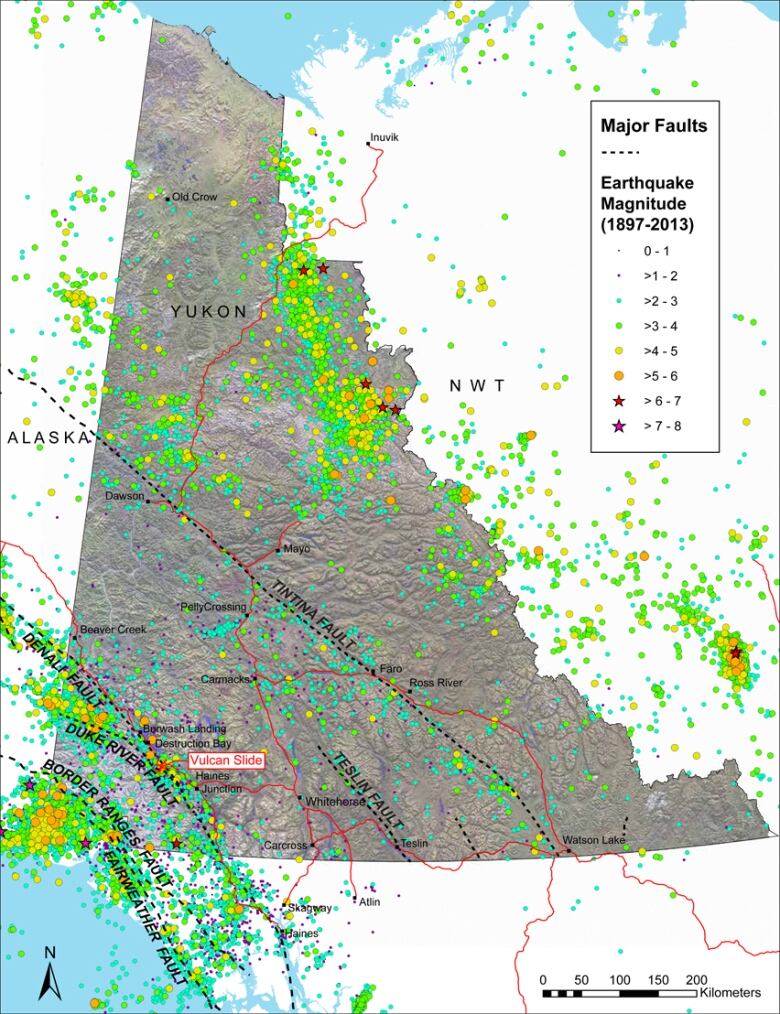Landslide creates new lake in Yukon's Kluane National Park
Park worker discovered new lake last September

Geologists say seismic activity in southwest Yukon was the likely cause of a landslide in Kluane National Park and Reserve last year that dammed a creek and formed a new lake.
The landslide blocked Vulcan Creek, a tributary of Slims River that flows into Kluane Lake near the Tachäl Dhäl Visitor Centre.
The new lake was discovered in September by an off-duty parks employee. Sean Pociuk was hiking up Vulcan Creek when he noticed a blockage up ahead. When he got closer and saw the landslide, he says he could tell it had happened recently.
"There were bits of pieces of earth still falling down, like little chunks," Pociuk says.
He says he could also see permafrost sticking out of the ground.
Craig McKinnon, Kluane's manager of resource conservation, says landslides aren't often recorded in the park because they aren't always seen.
"In my 25-year career, this is the first that I've been aware of," McKinnon says.
The exact trigger for this landslide isn't known but Panya Lipovsky, a surficial geologist with the Yukon Geological Survey, says earthquake activity has weakened bedrock in the Kluane area over time.
"It's one of the most seismically active regions in the Yukon," Lipovsky says. "(The slide) occurred very close to the Duke River fault, which is probably the most active fault."
The Duke River fault runs under the St. Elias Mountains, roughly parallel to Kluane Lake.
Lipovsky estimates the Vulcan Creek slide happened between mid-August and mid-September. While there were a few earthquakes larger than magnitude four that occurred in the area earlier in the summer, she says there weren't any significant earthquakes during that period.
Parks staff visited the site in the fall.
"The lake that was formed was fairly substantial," says McKinnon, describing it as about 350 metres long and 80 metres wide.
The lake is several kilometres above the Slim's East trail, which McKinnon says receives about 40 hikers a year. He says there have been no area closures so far, but Parks Canada will continue monitoring the area in the spring.
He advises visitors not to hike up Vulcan Creek or linger on the alluvial fan on the Slim's East trail.
